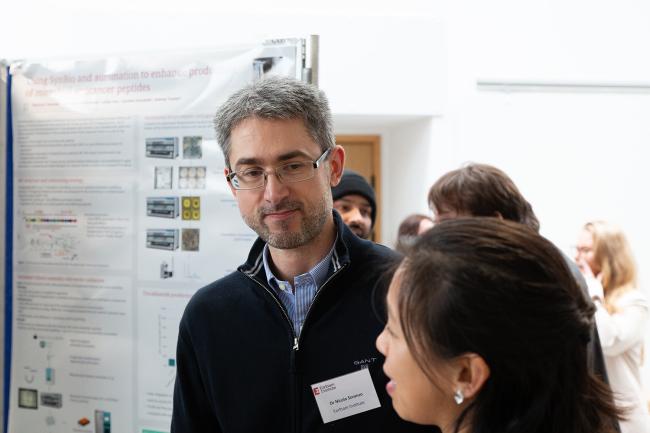
Led by Dr Tamas Korcsmaros of the Earlham Institute and the Institute of Food Research, in collaboration with Dr Vicky Schneider1 and Professor Giulio Superti-Furga2, the review argues that truly multidisciplinary approaches; requiring a combination of computational and biological domain-specific knowledge and techniques, remains a challenge for medicine.
The authors set about trying to address this by reviewing relevant biological literature to identify new opportunities for combining disciplines to further promote the impact of network medicine and advise best practices for researchers aiming to deliver successful multidisciplinary projects in network medicine.
The scientists tested this by running a five-day interdisciplinary signalling workshop bringing together, in an environment designed to promote informal interpersonal interactions, experts from a wide range of backgrounds (in silico modellers, computational biologists, biochemists, geneticists, molecular and cell biologists as well as cancer biologists and pharmacologists).
Participants discussed the current technology in their respective fields and early stage researchers presented their projects, research questions and large-scale experiments. Experimentalists were asked to submit a key problem that required interdisciplinary approaches, which was discussed in subgroups led by senior scientists with specific relevant expertise. Due to the success of the previous pilot event, the Earlham Institute is now organising the second Interdisciplinary Signaling Workshop in the summer of 2017.
As with all things in 'new biology', attending scientific meetings, networking as well as gaining a general methodological understanding of each other's discipline is essential to establish successful interdisciplinary teams. To stay ahead in this fast-moving field, institutions need to actively facilitate opportunities for postgraduate life science bench researchers to learn enough about bioinformatics so they may formulate precise biological questions that can be tackled computationally.
The challenge remains - each discipline is becoming more specialised and technical - and researchers within those disciplines are usually competing for decreasing research funds through stretched funding bodies which are not well set up for evaluating multi-disciplinary projects.
Dr Korcsmaros, said: “The increasing number of multi-disciplinary projects shows the power of interdisciplinary approaches and their translational success in clinics.
“Key outcomes that we experience from these studies and meetings are to understand better multi-disciplinary training needs and how to provide a supportive environment for building the interdisciplinary skills and collaborations for all scientists.
“We hope a joint effort of researchers from different disciplines will soon change the consistently lower current funding environment for these proposals. We will then be able to meet the interdisciplinary training requirements of network medicine, and provide excellent opportunities for the application of such approaches for the next generation of researchers.
The scientific paper, titled: “Next Generation of Network Medicine: Interdisciplinary Signalling Approaches” is published in the Royal Society of Chemistry Integrative Biology.






